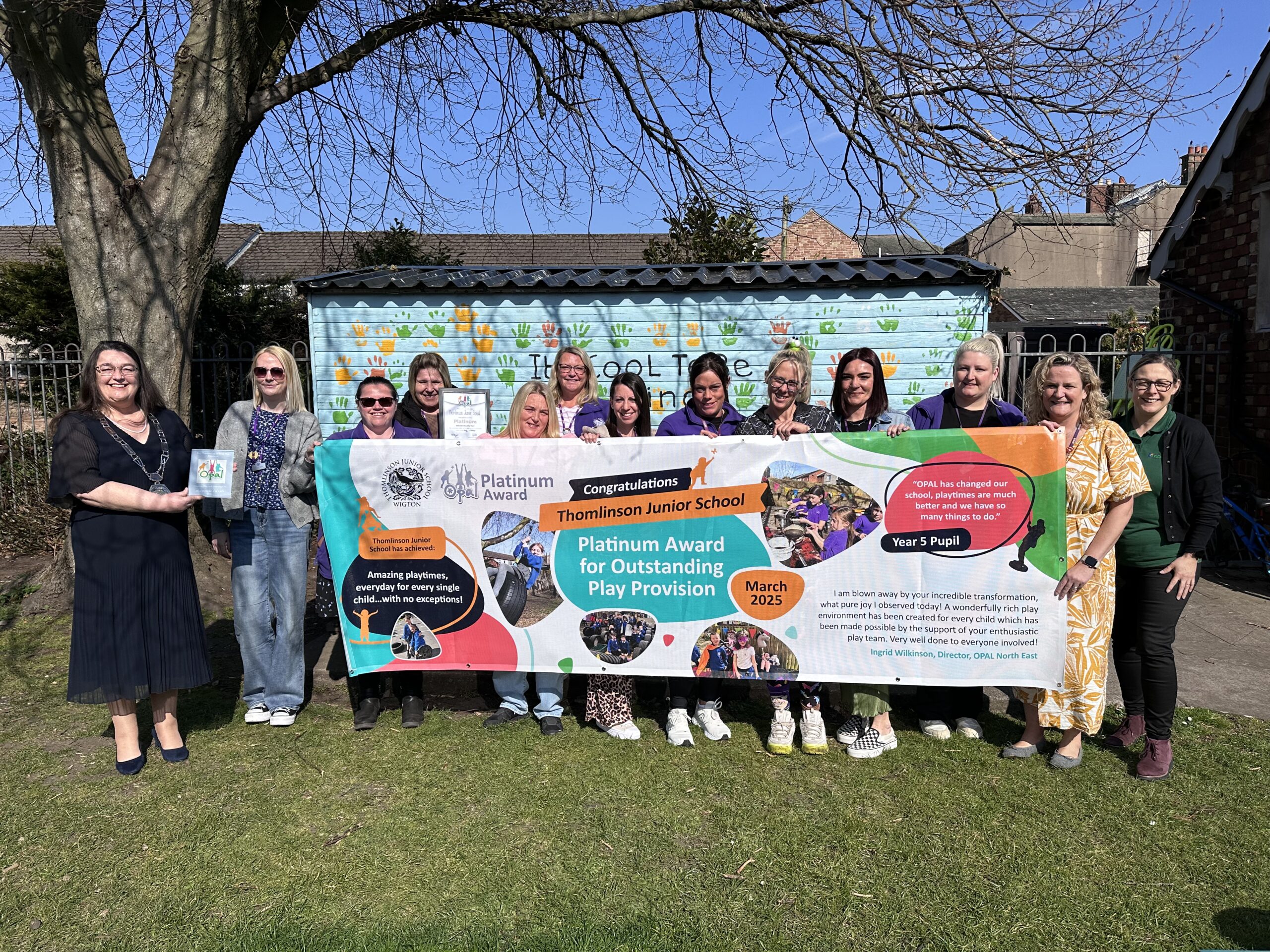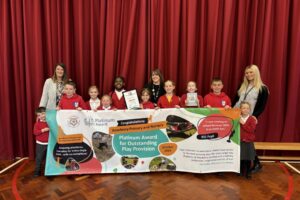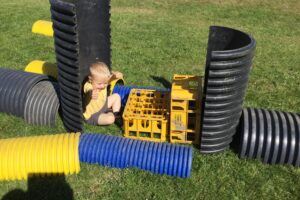
Thomlinson Junior School, West Cumbria
- Date April 1, 2025
“OPAL has become a huge part of our school culture. Children are extremely appreciative of having it and say they feel very lucky.”
Before OPAL, we had a lot of children who were bored and many who struggled to interact and make friendships. Children who enjoy physical activities, like football or the gym, were happy outside but many children would walk around aimlessly. Some would be on their own. Many days, we would have arguments or fallings out. Most of which, we believe, was down to boredom.
As we are a Resourced Provision, we have children with difficulties, both developmental and behavioural. We wanted to engage all children in their playtime and make sure we have something for everyone!
The children are so much happier! Our playground is filled with laughter!
OPAL has had a huge impact. Children are engaging with one another, communicating, role playing and using their imagination. They are playing with children they never would have before. They have so many more opportunities to develop physically – lifting, rolling, jumping and hanging to name a few!
We have worked a lot on decision-making and judging risk. Children think about how they can achieve things safely. Their problem solving skills are also improving. We have talked to them about their resilience. Many children would want an ice pack or a plaster, or to come indoors if they hurt themselves. Now, we see children much more resilient and managing without unnecessary intervention.
Every child has the opportunity to play where or with whatever they want.
Our SEND children spend play time outside with the rest of school. We have nothing that is only allowed for certain groups of children. We have a child who struggled to self regulate and found playing with others very challenging. He will now play with the sensory equipment –water trays, mud kitchen etc – quite happily alongside other children.
Our attendance has steadily increased over the last couple of years.
Our average attendance is just over 96%. We do believe a big part of that is that children are enjoying school more because of the playtimes. We have less behaviour issues too, like arguments and fallings out. Children are occupied and can find something to do, which keeps them busy.
Our accidents have dropped slightly despite the fact we have much, much more equipment outside, including equipment which does hold some potential of risk. However, this term we have seen a dramatic drop on last term already after doing some work in assemblies on resilience and introducing a new triage system. I would hope this continues to see a drop in accidents going forward.
OPAL has become a huge part of our school culture.
Children are extremely appreciative of having OPAL and say they feel very lucky. Children are involved in the development of the programme, from creating safety rules, assessing damage to manning zones. Playtimes have become a huge strength of the school with everyone involved, very positive about it. Parents, PTA and governors have totally embraced the journey and support it wherever they can.
Staff have loved to see how the playtimes have changed. They see how happy and engaged the children are now and say it is lovely to see children ‘playing’ again.
Angela Brown, Deputy Headteacher, Thomlinson Junior School, West Cumbria
Tag:Case Study
You may also like

Fatfield Academy, Washington, Sunderland

Roseberry Primary and Nursery School, Durham
